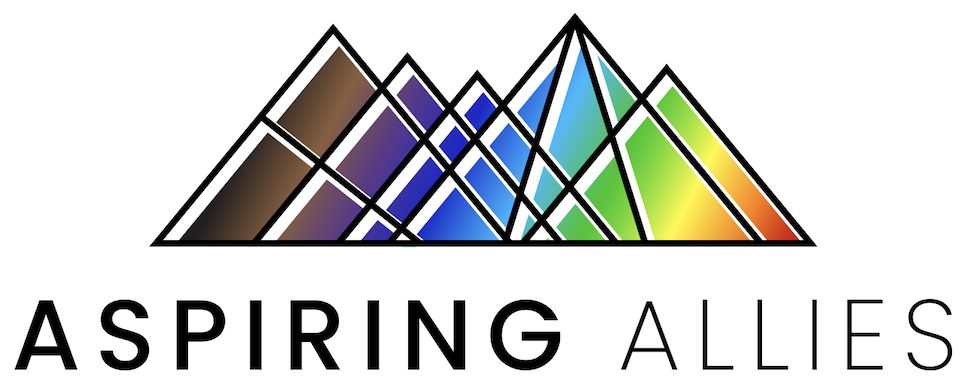Ashley and I have each led our fair share of inclusive language workshops for various participant groups. In nearly all of them, someone mentions that they want to make sure they get it right, because they want to use language that will make everyone feel most comfortable and welcome. I think most people can agree that we want to make others feel warm and affirmed in spaces whenever we can. However, our language will never be totally inclusive, because we will never know how someone identifies or how words were used in their life before they met us. For example, I use the word “queer” all of the time at work because I mostly work with young adults or those who also work with young adults. In the Pacific Northwest, queer is the word young people use as a synonym for the LGBTQ+ community because it’s easier to say. It is also used as a word signifying a disruption of societal gender and sexual norms. Now, while I use it all the time at work, I’m really conscientious about using queer when I am talking to older LGBTQ+ people, because for them, it was mostly (if not always) used as a pejorative while they were growing up. I’m not arguing that we throw the baby out with the bathwater and get rid of the idea of inclusive language, but we need to contextualize how we understand “getting it right.”
Perfectionism
The idea of getting it right all the time leads us to perfectionism, a tenet of white supremacy culture. We, especially as white people, want to get it right (although I see this in all privileged groups). We want to be seen as “allies” and utilizing the “right” language will allow us to demonstrate that we are good allies. I don’t disagree that language is a key component of allyship, but there are so many other components where we will get it wrong. An article or workshop about language, again important, will not teach us how to be empathetic toward LGBTQ+ people or people with disabilities. These tools will also not teach us how to be perfect allies. Aspiring to be perfect does not necessarily mean that we will have authentic relationships with others, especially those with marginalized identities. If you want authentic relationships, then mistakes are inevitable, because you will get to know others at a deeper level and learn more about what makes them tick. And, sometimes what makes someone tick goes against the grain of “inclusive language” because of how that language was used when they were young (e.g., queer versus LGBTQ+).
Mistakes → Creating Relationships
Much of our lives are spent creating relationships, making mistakes, repairing those relationships, and thereby, creating deeper relationships. Back to making mistakes and not being perfect, most of us are hypervigilant in our language, trying not to use words that will make those around us and those we care about feel bad or unwelcomed. Mistakes are inevitable. We are, as the American singer-songwriter Gretchen Wilson sang, “I’m just a product of my raisin’.” Where we come from, and the language we grew up with, significantly influences us and until we are challenged, we will continue to utilize the same language that we were raised with. This doesn’t mean that we shouldn’t change when we learn better, we should, but we should also grant ourselves some grace when we mess up. Finally, when we make mistakes, then apologize and do better in the future, we strengthen our relationships. If someone calls you out for your language with them, it usually means that they care enough about you to tell you so that they will want to keep you in their life.
Both/And
This post is not an argument for either/or thinking, rather, we should think about inclusive language as a both/and. Inclusive language is both vital to allyship and not a panacea that will cure all ills related to any -ism. So please read the articles, listen to the podcasts, and watch the YouTube videos about how to be more inclusive with language, but the work doesn’t stop there.
